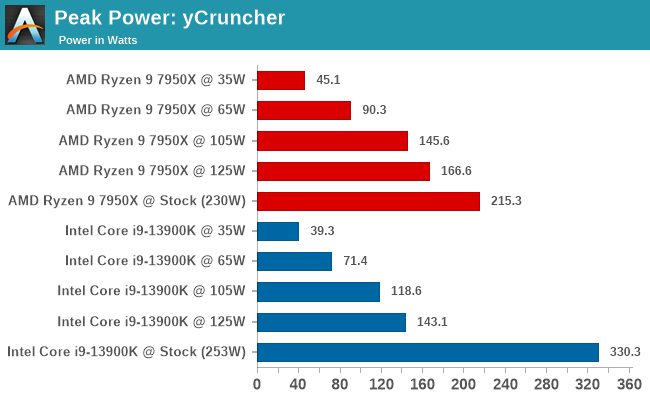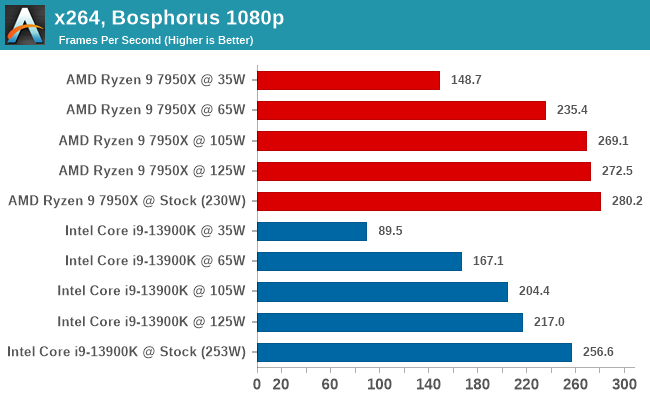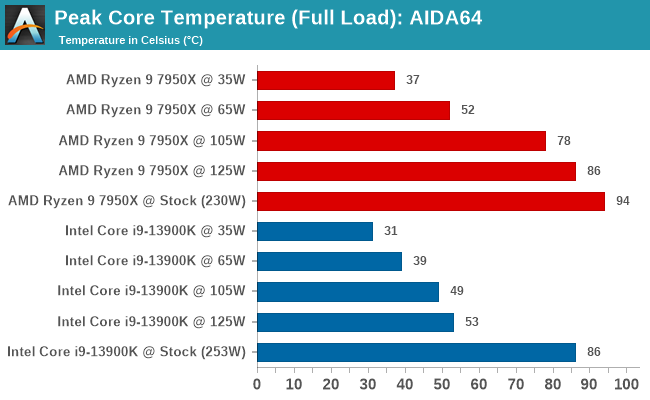The only truly valid comparisons about microarchitecture efficiency are with cpus manufactured on equivalent nodes, having equal core counts and running at the same clock speeds. Comparing the 7700K versus the 1800X is not a valid comparison. Adding more cores and running them at a lower all-core frequency is going to be way more efficient in MT workloads than having say half the cores and running them at double the clock speed. So if you want to go back that far and compare 7th gen to Ryzen 1000 the comparison should be the 7700K against the 1500X and that on equal clock speeds (by downclocking the 7700K). And even that wouldn’t be fair to AMD as Intel’s 14nm is superior to GloFo/Samsung 14nm. The latter when mapped on Intel’s scale is not a 14nm but a 16nm node. The former when mapped on TSMC’s/GloFo/Samsung scale is a 10nm node.
Anyway, as I said in terms of node equivalency, the closest we have is Intel 10nmSF/10nmESF/Intel 7 and TSMC 7nm/7nm+. The Intel cpus manufactured on this type of node are Intel’s 11th gen mobile and 12th-14th gen. The AMD cpus manufactured on such nodes are the Ryzen 3000, 4000 and 5000 series cpus. So the Ryzen 7000 series you mentioned are out of the comparison as there is a node advantage for AMD. Valid comparisons would be for example the following:
1. AMD R3 3100 vs Intel i3 12100F (link
here). Both at 4.1GHz, both 4C/8T, both on a 7nm class node. In gaming the Intel cpu pulls 32-42W, the AMD cpu pulls 52-55W and the Intel chip delivers 40% more frames on average and 50% more 1% lows. That is Intel having 2.3x better performance per watt.
2. AMD 5600 Vs Intel 12500 (link
here). Both on 7nm class, both 6C/12T. Intel is running at 4.1GHz and AMD at 4.45GHz. Intel is winning by 3-16% while AMD consumes 30% more power. So Intel is having up to 1.5X better performance per watt.
3. AMD 4900H vs Intel i9 11900H. Both 7nm, both 8C/16T, both mobile cpus. Intel is running at higher frequency. Intel wins comfortably in raw performance but AMD edges out a win in stock performance per watt. Downclocking the 11900H to match the 4900H clockspeeds and the performance per watt win goes to Intel.
Of course the choice of core count and clock speed is ultimately a design choice. And that is why Intel pivoted to the use of a hybrid architecture with many e-cores that also run at lower speeds in order to boost MT performance more efficiently. This allowed them to remain competitive for long enough despite being a full node behind. Let's wait and see what they do when they are a node ahead.






